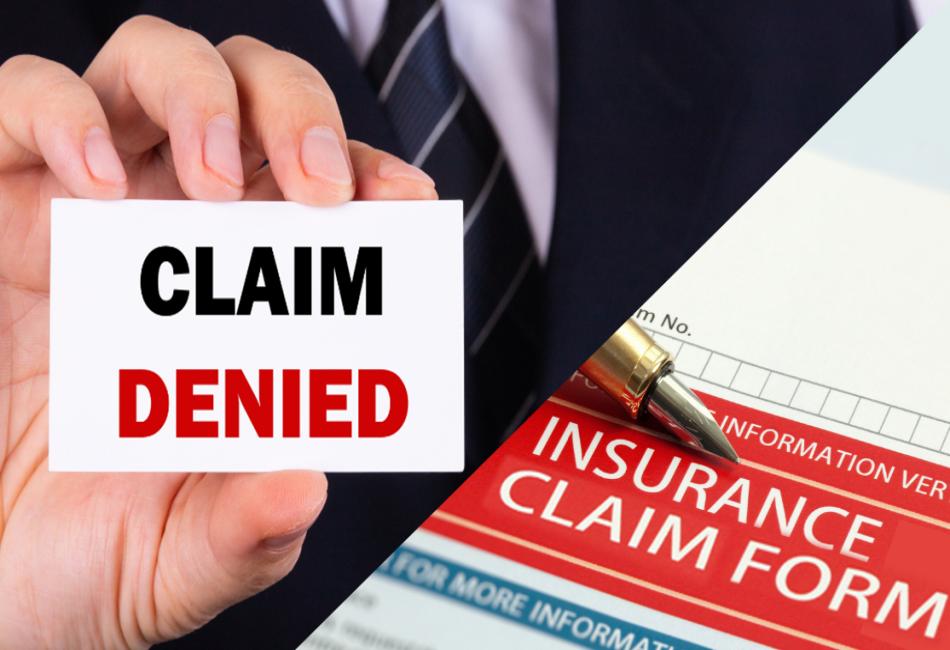Key Takeaways
- Insurance claim denials are more common than many realize, particularly for property and real estate claims.
- Knowing your rights and steps to dispute denials can significantly affect the outcome.
- Timely documentation, communication, and understanding policy details are crucial steps.
- Professional and legal help may be necessary for complicated cases.
Understanding your insurance policy, knowing which details matter most, and acting quickly can empower you to turn a denial into a successful payout. The right approach can differ between a closed claim and the compensation you need to repair your property or safeguard your investment.
Insurance claim denials, especially those tied to real estate and property, are a frequent and often frustrating experience for homeowners and investors alike. Navigating a claim denial means understanding why it happened, what your rights are, and the steps you need to take next. Knowledge is your best defense, ensuring you avoid costly mistakes and assert your position confidently. If you are overwhelmed or unsure how to proceed, consulting experienced professionals like Robinson & Henry real estate attorneys can help clarify your options and protect your interests. Disputing a denial requires documentation, promptness, and persistence. A good percentage of disputed claims end in reversals or settlements. Acting early improves your chances. Knowing common reasons for denied claims helps prevent errors. Whether due to missing paperwork, filing issues, or policy exclusions, there are strategies to address each. Don’t lose hope after an initial denial—most policyholders have more options. Sometimes, insurers mistakenly or unintentionally reject valid claims. Review the insurer’s explanation and compare it with your policy before accepting a denial.
Why Insurance Claims Get Denied
Insurance claims are often denied due to incomplete paperwork, missed deadlines, misrepresentation, and policy exclusions. Insurance carriers base their decisions on contract wording and incident details. Even a simple oversight can trigger denial. Insurers can make mistakes, and valid claims may be rejected due to administrative errors or misunderstandings. Policyholders should review insurer explanations and policy terms before accepting a denial. Gathering supporting documentation, such as photographs, repair estimates, and witness statements, can strengthen an appeal. It’s also wise to keep a timeline of events to demonstrate compliance with policy requirements.
In some cases, requesting a written clarification from the insurer can reveal inconsistencies in their reasoning. Seeking assistance from a public adjuster or attorney can help ensure the appeal is properly structured and supported. A proactive and informed approach often differentiates between a failed claim and a successful resolution.
Common Types of Claim Denials in Real Estate
Claims often face rejection due to coverage exclusion, lack of documentation, late filing, and misrepresentation. Coverage exclusion occurs when damage from events not listed in the policy, while a lack of documentation can halt claim progress. Missing deadlines can lead to denial, and inconsistencies in information can invalidate claims. To reduce the risk of rejection, policyholders should carefully review their policy to understand what is and isn’t covered before filing. Maintaining organized records, such as receipts, photographs, and repair estimates, can provide essential evidence. Promptly reporting incidents to the insurer helps meet critical timelines and demonstrates good faith. Cross-checking all information before submission can prevent unintentional errors or contradictions. When in doubt, consulting an insurance professional can ensure the claim is filed accurately and complies with policy terms.
Immediate Steps to Take After a Denial
- Review your denial letter thoroughly to pinpoint the insurer’s reasons for rejection.
- Contrast the listed reason with your policy’s covered events and exclusions to see if the denial was justified.
- Identify any time-sensitive requirements for appeals or further submissions, marking all deadlines in your calendar.
- Begin assembling any additional documentation or evidence that could challenge or clarify the reasons for denial.
Responding rapidly and with clear focus demonstrates your commitment and keeps your options open. Timeliness is often the deciding factor in preserving your right to dispute.
Gathering Evidence and Documentation
- Take comprehensive photographs of the damage or affected area from various angles.
- Collect receipts, estimates, and records of lost property repairs or valuations.
- Keep detailed logs of all communications with repair contractors, first responders, or witnesses.
- Include any previous inspection reports or independent assessments if you have them available.
Each piece of documentation can significantly strengthen your appeal. Thorough records leave little room for ambiguity and give your insurer solid grounds to revisit their decision.
How to Dispute a Claim Denial
Start the dispute by drafting a formal appeal letter to your insurance carrier. Concisely outline your position, attach all relevant evidence, and request a review of the denial based on your findings. It’s essential to keep copies of every correspondence for your records.
- File your appeal within the timeframe listed in your policy or denial notice, never exceeding established deadlines.
- Request a more detailed rationale if the insurer’s initial denial explanation lacks clarity.
- If necessary, ask that your case be reviewed by a supervisor or a more experienced claims adjuster.
Well-prepared appeals often yield successful outcomes, especially when backed by evidence and persistent follow-up.
When to Seek Professional Help
Hiring a public adjuster specializing in real estate or property insurance can significantly improve the outcome if your property loss claim involves significant damage or multiple appeals. They can provide insight into policy details and advocate on your behalf. Legal counsel may be necessary if the dispute involves ambiguous policy language, potential bad faith, or substantial financial stakes. Professional advocates can navigate legal nuances and complex insurance policy interpretations, leveling the playing field for policyholders. Their expertise often leads to faster settlements and higher payouts than policyholders might achieve alone. Public adjusters and attorneys also have established relationships with industry experts, such as appraisers and engineers, who can strengthen your claim. In addition, they can anticipate and counter common tactics insurers use to delay or deny payments. Partnering with experienced professionals ensures that your rights and financial interests remain protected throughout the claims process.
Keeping Track and Following Up
Maintain an organized log of every interaction with your insurance company, including phone calls, emails, and letters. Set reminders for all critical deadlines and regularly check the status of your appeal. Demonstrating diligence and organization shows your insurer you are serious and minimizes the risk of process errors. Detailed documentation can also be valuable if the dispute escalates to regulatory review or legal action. Consistent follow-up ensures your case remains a priority and prevents unnecessary delays in resolution.
Conclusion
Navigating an insurance claim denial can be frustrating, but understanding the common reasons for rejection and knowing how to respond can significantly improve your chances of success. Policyholders can effectively challenge unjust decisions by staying organized, gathering comprehensive documentation, and acting promptly. Leveraging professional help from public adjusters or attorneys can further strengthen your position, especially in complex or high-value cases. Ultimately, persistence, preparation, and a clear understanding of your policy’s terms are the keys to turning a denied claim into an approved one. Taking these steps not only safeguards your financial interests but also reinforces your ability to confidently handle future claims.








